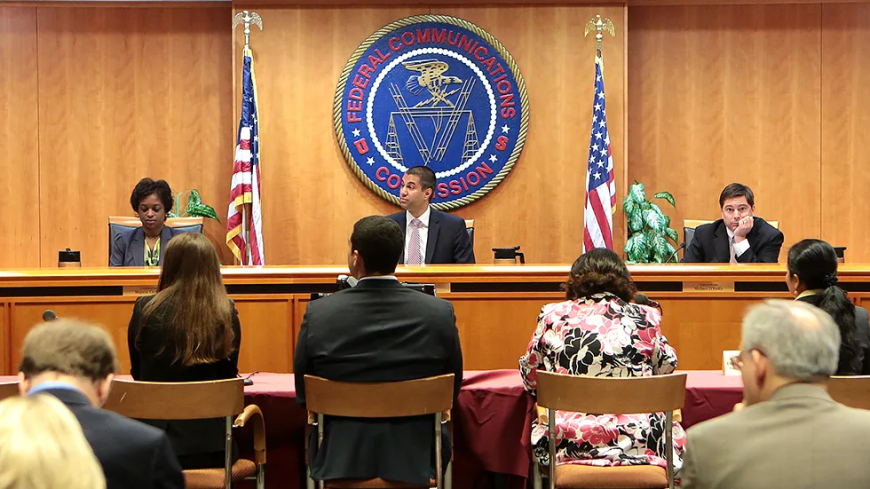FCC Probes NBC and ABC Over Trump’s Culture War Claims: A Regulatory Flashpoint
The FCC is probing NBC and ABC after President Trump’s culture war claims, examining whether the networks are meeting public interest standards. Experts warn of potential political overreach.

The Federal Communications Commission (FCC) has launched preliminary investigations into broadcast giants NBC and ABC following recent claims by President Donald Trump that both networks are “fueling cultural division” through selective reporting and editorial bias. The probe marks the latest flashpoint in Trump’s ongoing culture war, where media regulation and political speech are increasingly colliding.
The Spark Behind the Investigation
The FCC’s move comes just weeks after Trump criticized NBC and ABC during a campaign-style rally in Ohio, accusing the networks of “coordinated censorship” and unfair portrayal of conservative values. Trump’s comments were amplified across his social media platforms, reigniting debates over media fairness, the First Amendment, and regulatory oversight.
According to FCC officials, the review is not a direct consequence of Trump’s remarks but rather part of a broader mandate to examine whether major broadcasters are meeting their obligations of balanced coverage under the Communications Act. An FCC spokesperson emphasized, “The commission must ensure that license holders operate in the public interest. The review is exploratory, not punitive, at this stage.”
Broadcast Content Under the Microscope
At the heart of the probe are prime-time news and special reports aired by NBC and ABC between June and August 2025. Content analysis conducted by independent policy watchdogs suggested disproportionate airtime was given to progressive policy perspectives compared to conservative ones.
For instance, while ABC News dedicated extended coverage to state-level abortion rights battles, its reporting on immigration enforcement drew sharp criticism for allegedly excluding Republican viewpoints. Similarly, NBC’s programming on cultural topics—such as book bans, LGBTQ+ rights, and educational policies—was flagged by Trump allies as “agenda-driven storytelling.”
Broadcast law experts caution, however, that the FCC’s authority is limited. “The FCC cannot regulate content for viewpoint,” explained Andrew Schwartzman, a veteran telecommunications attorney. “What it can do is investigate whether stations are fulfilling their requirement to serve the public interest. That’s a much narrower standard than policing bias.”
Historical Parallels
The current probe echoes earlier media battles in U.S. history. In the 1970s, the Fairness Doctrine required broadcasters to present contrasting viewpoints on controversial issues, but it was repealed in 1987 under the Reagan administration. Critics of today’s FCC review fear it could lead to a de facto revival of similar standards, which free press advocates argue would chill editorial independence.
Yet Trump’s supporters frame the probe as overdue accountability. “For too long, big networks have operated like political action committees rather than public broadcasters,” said Sen. Josh Hawley (R-MO). “If they want the privileges of FCC licenses, they must meet the responsibilities that come with them.”
Expert Reactions and Industry Pushback
Media scholars and regulatory experts remain divided on the probe’s legitimacy. Kathleen Hall Jamieson, director of the Annenberg Public Policy Center, warned, “Presidential pressure on the FCC can create a perception of politicized oversight. Even if this investigation is routine, the context makes it look retaliatory.”
Meanwhile, the National Association of Broadcasters (NAB) quickly defended NBC and ABC, issuing a statement: “Broadcast journalism is protected by the First Amendment. Political disagreements over editorial choices do not constitute grounds for government interference.”
Both NBC and ABC have declined to issue detailed statements but reiterated their commitment to fact-based reporting. Behind the scenes, legal teams at both networks are preparing for potential hearings, according to individuals familiar with the matter.
The Bigger Picture: Media, Politics, and Regulation
The investigation underscores a larger battle over media trust in America. A recent Gallup poll found that only 34% of Americans express confidence in mainstream media, with partisan divides sharper than ever. Trump’s strategy appears aimed at leveraging that distrust to bolster his 2026 midterm agenda.
If the FCC were to escalate its inquiry, the potential outcomes could include fines, license reviews, or mandatory compliance measures. While unlikely, the political ramifications are enormous. For Trump, the probe signals a tangible move against what he labels “corporate media bias.” For broadcasters, it raises the specter of regulatory entanglement that could redefine boundaries between press freedom and public accountability.
Looking Ahead
The FCC’s review is expected to extend into early 2026, with findings possibly shaping the political climate leading into the midterms. Whether this probe amounts to routine oversight or a politically charged clash will depend on how aggressively regulators pursue the matter—and how NBC and ABC respond.
One thing is clear: as Trump sharpens his culture war narrative, America’s broadcast media will remain squarely in the crosshairs of both political rhetoric and regulatory scrutiny.











